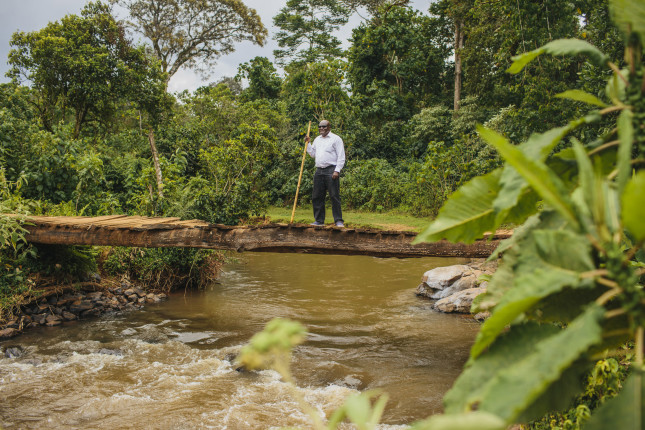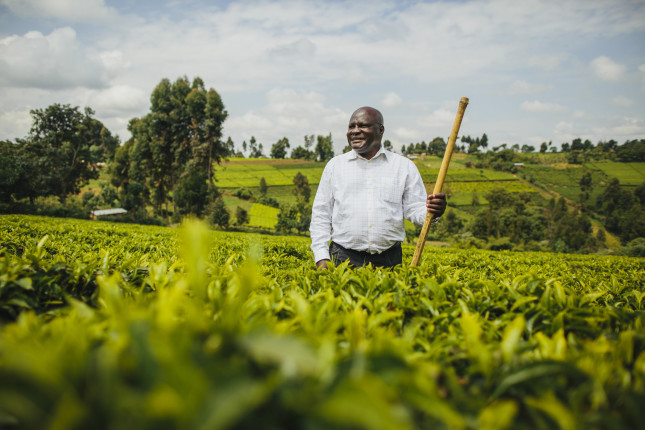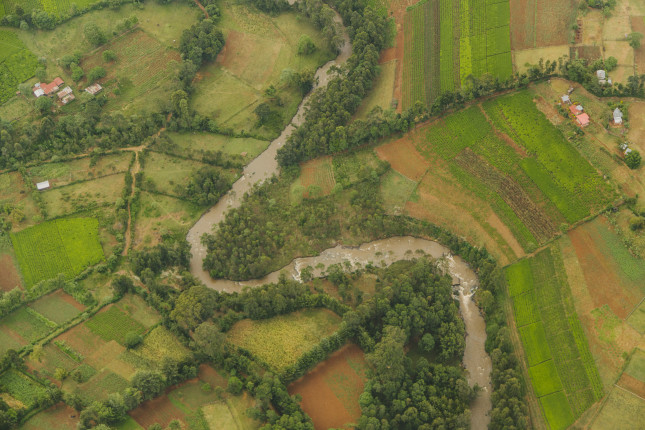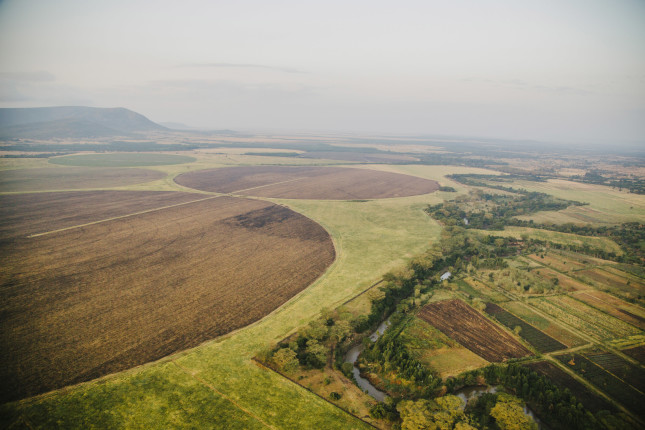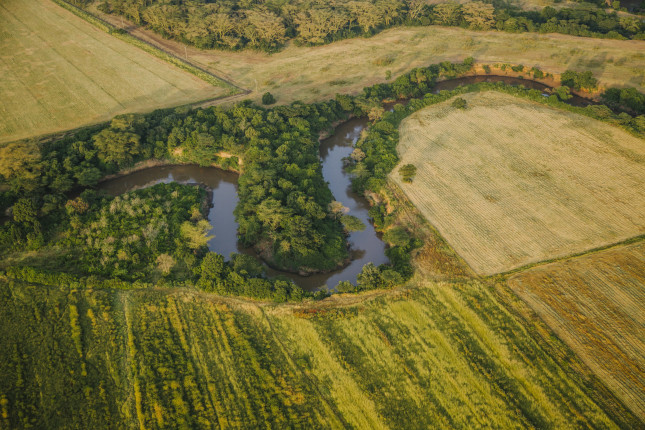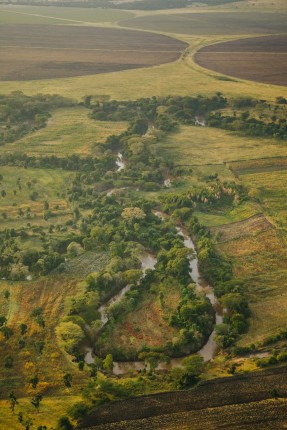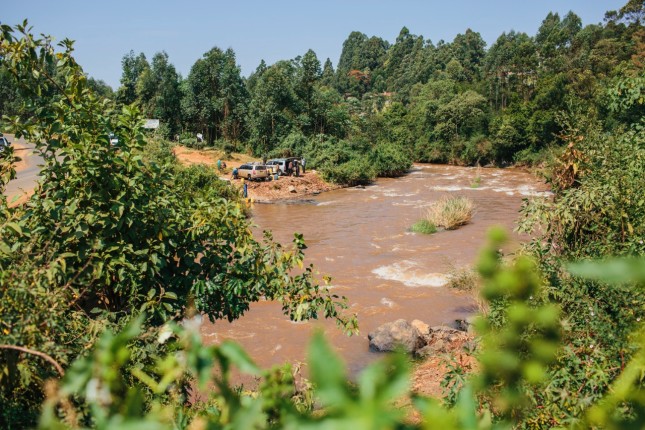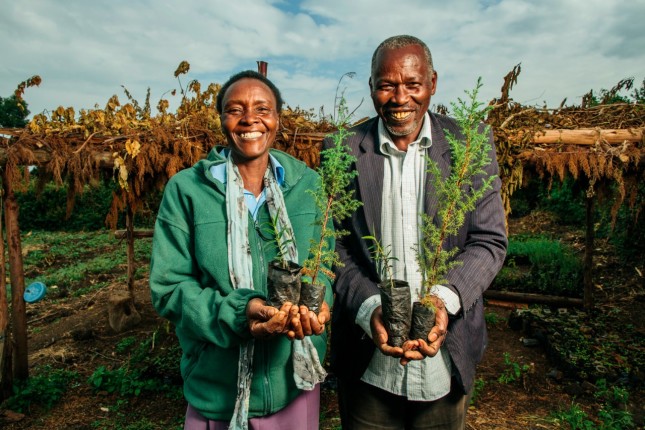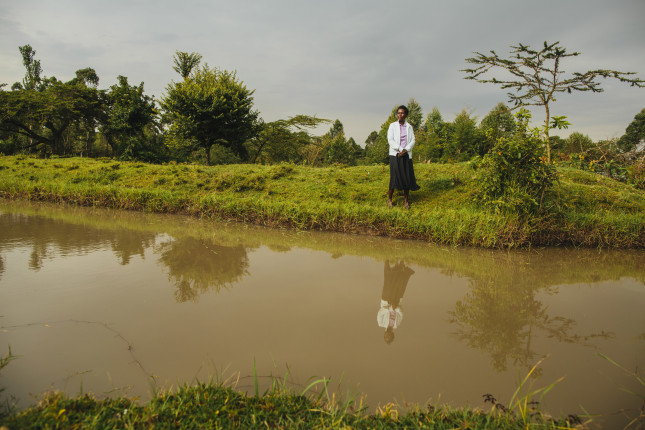-
“The River Belongs to the People”: Building Cooperation in the Mara River Basin
September 25, 2018 By Wilson Center Staff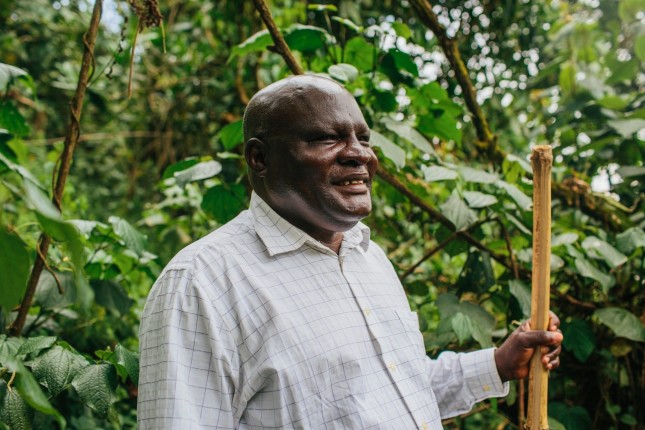
Water engineer Gordon Mumbo of USAID’s Sustainable Water Partnership grew up in the small Kenyan village of Kamuga. Year after year, he watched as frequent floods from one of Kenya’s major rivers, the Nyando, disrupted village life. After 30 years of a wide-ranging career in water, for the first time since his childhood, he has returned to his birthplace, where he leads a team building community engagement in the Mara River basin.
Unlike the Nyando of Mumbo’s childhood, the Mara isn’t overflowing; instead, it’s at risk of running dry. The destruction of the Mau Forest, which acts like a sponge to store much of the river basin’s water, is depleting the region’s supply. The growth in the basin’s population—estimated at 3 percent a year—is increasing the demand for food, leading to land use change.
“People around the Mara on the Kenya side were typically pastoralists, but this is changing,” Mumbo said in an interview. “They are getting more into agriculture.” Sustainable Water for the Mara, the partnership’s three-year project in the basin, “is really coming at the right time to address these issues, before they get out of control,” Mumbo said.
Under a historic 2015 Memorandum of Understanding, Kenya and Tanzania agreed to cooperate on the basin’s management. “The two countries can clearly see that they need to sustain this river,” Mumbo said. “So Kenya and Tanzania coming together to set out the framework on how to manage the basin, it’s really a good move.”
“I think the work we are going to do in the Mara could be a model that could be copied in many basins,” Mumbo said. “And really the model will be the community—the stakeholders—being in the driving seats in managing the resource.”
“The river belongs to the people who live along it,” Mumbo said. “They understand the river better than anybody else. They will be able to own it and work with you at sustaining it. If you want to manage the river, you must involve the people.”
- As a child, Gordon Mumbo watched as floods disrupted life in his village. “I grew up wanting to be a water engineer and solve the flooding,” he says.
- After more than 30 years as a water engineer, Mumbo has returned to his birthplace to leading the Sustainable Water for the Mara activity.
- One of the most biodiverse regions in the world, the Mara is kept alive by the river flowing through it.
- The Mara River meanders through Kenya and Tanzania, contributing to food production, economic security and even tourism for both countries.
- “When you come to the Mara, it’s so critical, and the two countries can clearly see that they need to sustain this river,” Mumbo says.
- In a show of cooperation, Kenya and Tanzania have agreed to develop a transboundary Water Allocation Plan, which will simplify the process of managing the Mara.
- “I think the work we are going to do in the Mara could be a model that could be copied in many basins,” Mumbo says.
- “And the model wil be the community – the stakeholders – being in the driving seats in managing the resource.”
- “The river belongs to the people who live along it,” Mumbo says. “They understand the river better than anyone else. If you want to manage the river, you must involve the people.
- Mumbo’s work in the Mara is building something substantial: a legacy of cooperation for a more water-secure world.
Read More:
- Learning to cooperate over water is a matter of survival, according to the Global High-Level Panel on Water and Peace.
- Too little and too much: water scarcity and flooding threaten economic development and security in developing countries.
- In Kenya, water stress breeds cooperation between competing groups.
Sources: Daily Nation, Ministry of East African Community and Regional Development, Sustainable Water Partnership
Photos © 2018 Bobby Neptune for Winrock International
 A Publication of the Stimson Center.
A Publication of the Stimson Center.

